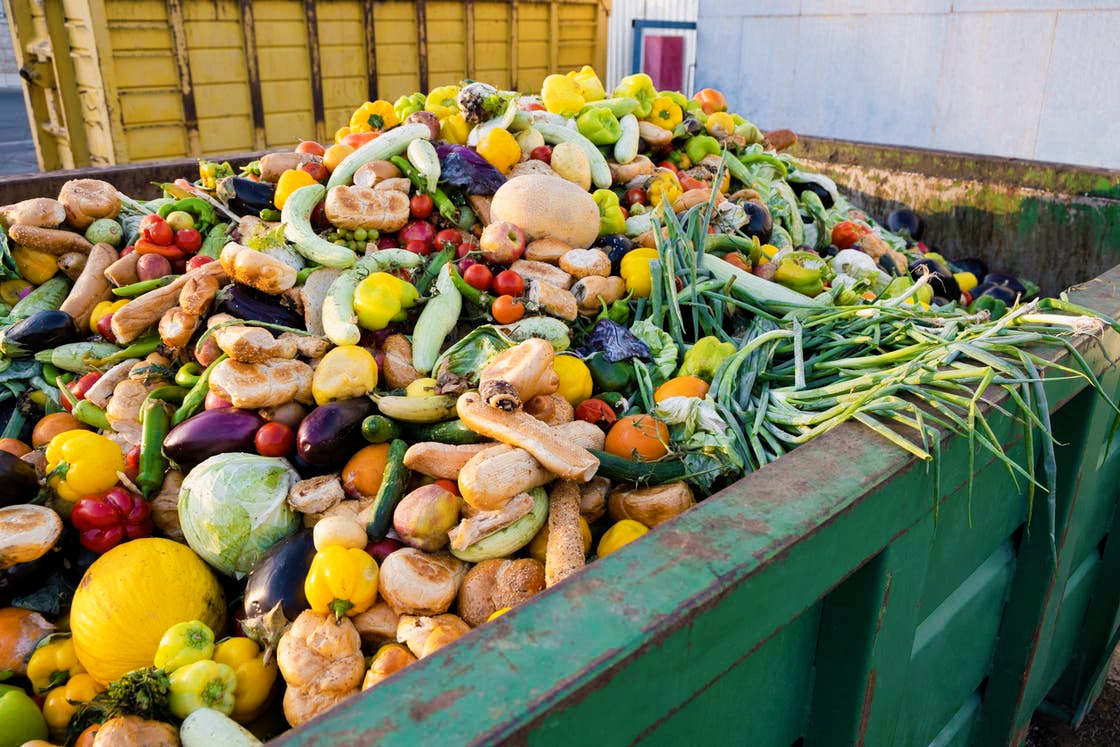In a decisive step aimed at reducing the growing environmental impact, the European Parliament has approved a new package of laws that obliges EU member states to significantly reduce food waste and tackle environmentally damaging "fast fashion" practices, while enhancing textile recycling systems.
These measures are part of the EU's ambitious plan to achieve environmental sustainability goals by 2030, amid structural challenges facing several member states.
* What’s New in European Laws?
Under the new rules, the EU requires its member states to reduce food waste by 30% in households, retailers, and restaurants, compared to average waste levels between 2021 and 2023, by 2030.
Member states must also reduce 10% of the waste generated from food processing and manufacturing.
Regarding the fashion sector, the laws establish extended producer responsibility (EPR) systems, requiring clothing and textile manufacturers to fund the collection, sorting, and recycling of textile waste within 30 months of the directive coming into force.
According to the EU, the average European citizen wastes 130 kilograms of food annually, totaling about 60 million tons of wasted food each year.
In the clothing sector, Europe produces 12.6 million tons of textile waste every year, with only 1% of this amount being recycled.
* European Countries Take Action... But Challenges Remain
Poland is among the countries that acted early; it has mandated major retailers to donate unsold food to charities and launched public awareness campaigns against food waste, alongside submitting regular reports on their efforts.
Food bank networks play a crucial role in rescuing short-dated or damaged packaged foods and distributing them to those in need.
Spain has enacted a law this year aimed at reducing food waste by 50% in the retail and consumption sector, and 20% across supply chains by 2030.
In 2024 alone, 51.54 million tons of food and beverages were prevented from being disposed of, although the overall reduction rate did not exceed 4.4%, keeping the waste volume at 15.125 million tons.
In Bulgaria, figures indicate that the average citizen disposed of 93 kilograms of food in 2023, which amounts to 614 thousand tons annually nationwide.
More than 100 thousand tons of clothing are disposed of each year, while only 7 thousand tons are collected separately, due to the lack of a mandatory national recovery system, relying solely on public awareness and voluntary initiatives.
* Crises and Confusion in Sweden and Romania
The new European laws have sparked controversy in Sweden, where they were directly transferred to national legislation without clarifying the responsible party for textile waste.
This led to recycling stations and second-hand shops being flooded with large quantities of unusable clothing, which were previously incinerated.
Anna-Karin Grippwald from the waste organization "Avfall Sverige" described the situation by saying: "The laws came in the wrong order."
As a result, the government decided to temporarily suspend the legislation starting from October 1, 2025, allowing a return to the disposal of unusable clothing.
In contrast, Romania faces a greater challenge due to the lack of infrastructure for recycling clothing. Although it has received EU funding to build 26 new facilities by 2026, the country may have to export waste or bury it unsorted until then, increasing costs and environmental impact.
Additionally, the very low landfill tax of only 50 euros per ton exacerbates the problem, compared to 500 euros in other countries.
* Other Countries Taking Action: Italy and Spain as Examples
Italy initiated a separate textile collection system in 2022.
According to the Italian Institute for Environmental Research and Protection, the rate of separate collection increased by only 9% between 2019 and 2023, from 157.7 thousand tons to 171.6 thousand tons.
Spain presented a draft royal decree in 2024 holding producers responsible for funding and organizing the collection and processing of clothing waste, in an attempt to stop the escalating crisis.
* The Next Step: Publishing and Implementing the Laws
The laws are expected to be signed by the parliament and member states in the coming weeks, before being published in the EU's official journal.
The legal deadline of 30 months will begin before the directive comes into full effect, giving countries time to arrange their situations and build the necessary infrastructure.
In the meantime, environmental protection activists are calling for a change in consumer habits, as Beatrice Rindefal, head of the Nature Conservation Association in Sweden, advises against buying more than 5 new clothing items per year and encourages clothing swap events as a sustainable alternative.
* "Fast Fashion" Under the EU Microscope
As part of additional efforts to curb cheap imports fueling "fast fashion", often produced in China, the EU proposed imposing a fixed import fee of 2 euros on small parcels.
It is noted that the EU received about 4.6 billion parcels last year—over 145 parcels per second—with 90% of them from China.
This prompted European textile and clothing industry unions to issue a joint statement condemning the situation and calling on the EU to make more efforts to curb this phenomenon.
These new laws represent a crucial step towards a more sustainable economy in Europe, but they also highlight the disparity in readiness among member states in terms of infrastructure and practical measures.
The key factor is the cooperation of consumers, manufacturers, and governments to ensure the success of these ambitious initiatives.

